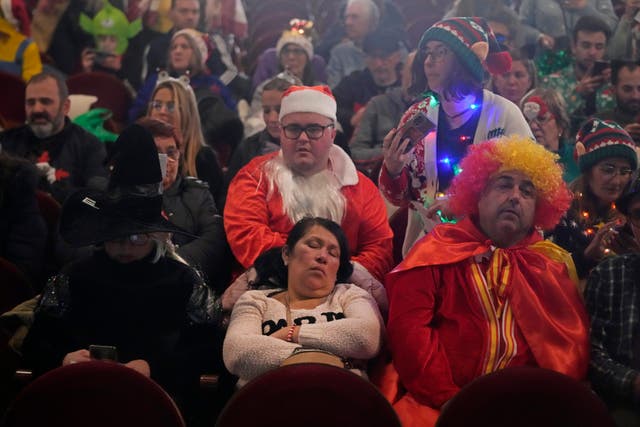
People are tuning into the TV, radio and internet as children from Madrid’s San Ildefonso school sing out the prize-winning numbers in Spain’s huge Christmas lottery, known as “EL Gordo” (the fat one).
The immensely popular lottery will distribute a total of 2.6 billion euro (£2.2 billion) in prizes this year, much of it in relatively small sums.
Holders of 20 euro (£17) tickets bearing the top prize number will receive 400,000 euro (£346,000).
Street and bar celebrations normally break out, with winners uncorking bottles of sparkling wine and singing and dancing.

The event is televised nationally from Madrid’s Teatro Real opera house.
Purchasing and sharing tickets, known in Spanish as “decimos” (tenths), in the run-up to Christmas is a major tradition among families, friends, co-workers and in bars and sports and social clubs.
The winning numbers are called out by children from Madrid’s San Ildefonso school. The children pick up balls showing ticket numbers and their corresponding prizes from two giant rolling drums. They sing out both figures in a tune that is known to everyone in Spain.
In the weeks beforehand, queues form outside lottery offices, especially those which have sold prize-winning tickets in the past.
Other lotteries have bigger individual top prizes but Spain’s Christmas lottery, held each year on December 22, is ranked as the world’s richest for the total prize money involved.
Spain established its national lottery as a charity in 1763 during the reign of King Carlos III. Its objective later became to shore up state coffers. It also helps several charities.
The December 22 lottery began in 1812. Since the beginning, the San Ildefonso college children have been singing the prizes.


Comments: Our rules
We want our comments to be a lively and valuable part of our community - a place where readers can debate and engage with the most important local issues. The ability to comment on our stories is a privilege, not a right, however, and that privilege may be withdrawn if it is abused or misused.
Please report any comments that break our rules.
Read the rules here